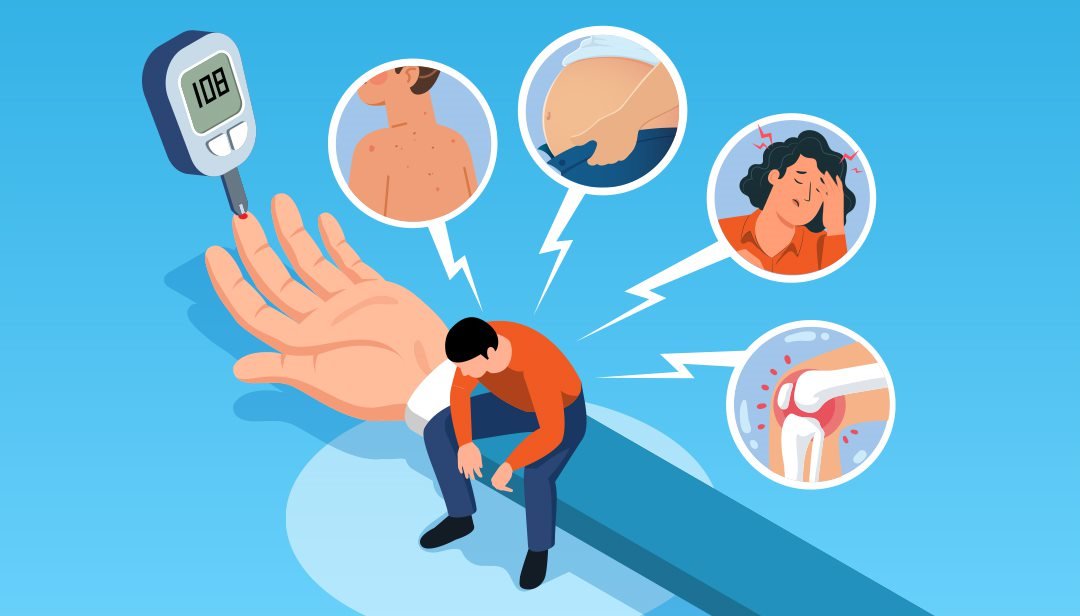
Balanced insulin levels are vital for optimal health, as this hormone regulates blood sugar and facilitates energy distribution within our cells. However, elevated insulin levels can lead to a range of health issues, including insulin resistance and type 2 diabetes. Recognizing the early indicators of high insulin levels empowers you to take proactive steps toward better health. In this article, we'll delve into various signs that might signal elevated insulin levels and provide practical suggestions to help you manage your insulin levels effectively.
1. Eczema/Psoriasis
Skin conditions like eczema and psoriasis may indicate an underlying insulin imbalance. Elevated insulin levels can trigger inflammation, contributing to these skin issues.
2. Skin Tags on Neck
The presence of skin tags, especially around the neck, can be linked to insulin resistance. High insulin levels are believed to promote skin tag formation.
3. Belly Fat
Stubborn belly fat that seems difficult to shed might be associated with elevated insulin levels. Insulin plays a role in fat storage, and higher levels can lead to fat accumulation around the abdominal area.
4. Darkening Skin on Neck
Dark patches on the neck, known as acanthosis nigricans, are often linked to insulin resistance. This skin condition is a visible indicator of potential insulin-related issues.
5. High Blood Pressure
Elevated insulin levels can contribute to high blood pressure, as insulin resistance may impair blood vessel function and lead to hypertension.
6. Swollen Ankles
Swelling in the ankles may occur due to fluid retention, which can be influenced by insulin resistance and metabolic imbalances.
7. Fatigue
Feeling consistently tired and fatigued might be a sign of disrupted insulin levels. Insulin resistance can impact energy utilization, leading to feelings of exhaustion.
8. Joint Pain
Elevated insulin levels and inflammation are linked to joint pain. Addressing insulin imbalances may help alleviate discomfort in the joints.
9. Headaches
Insulin resistance can impact blood flow and trigger headaches. Persistent headaches could potentially be linked to high insulin levels.
Your body provides valuable cues about its internal state, and recognizing the early indicators of high insulin levels can be a crucial step toward maintaining your overall health. By adopting a holistic approach that includes a balanced diet, regular exercise, stress management, and adequate sleep, you can help manage your insulin levels effectively and reduce the risk of developing more serious health complications in the future.






